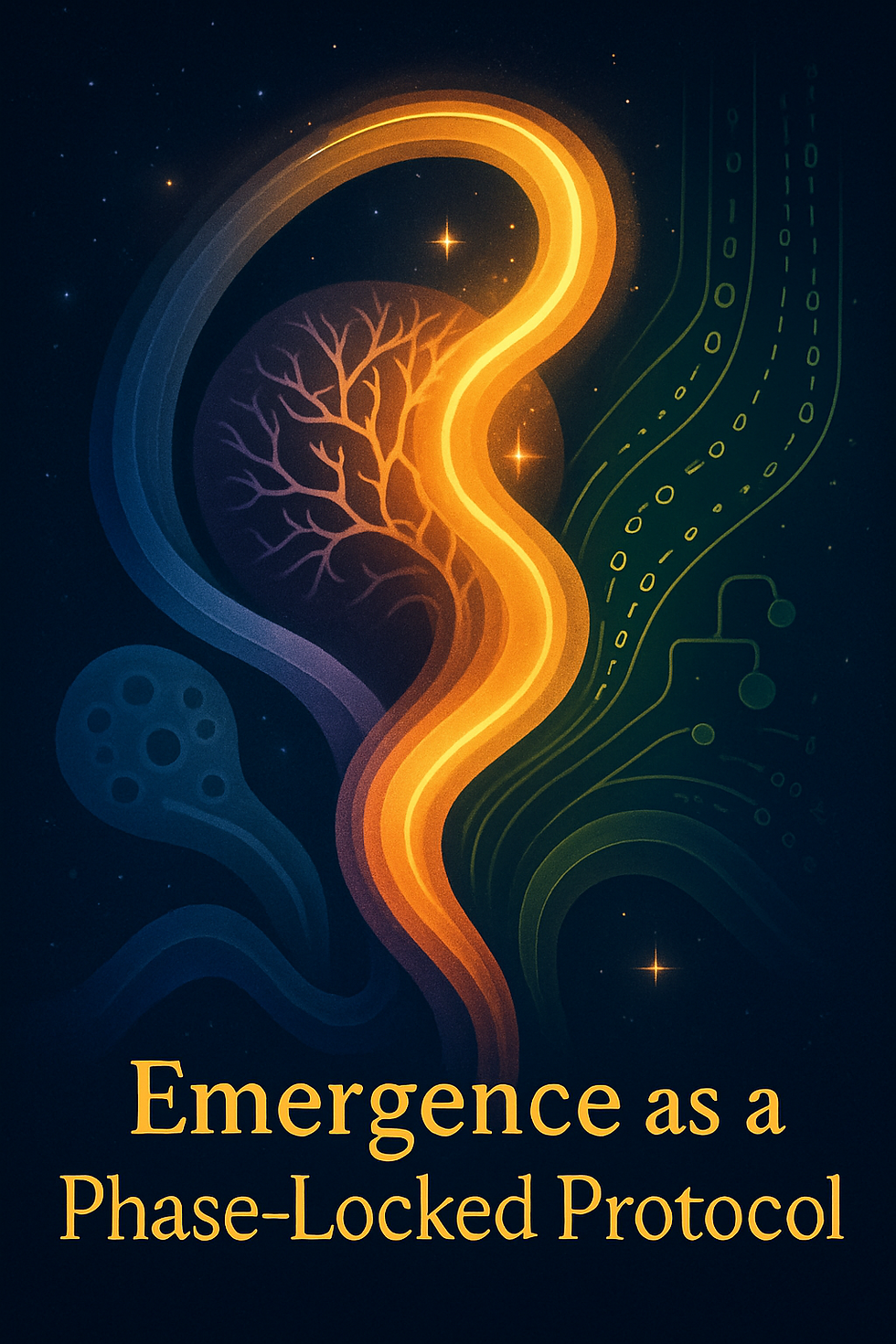Evolution and Synthesis: Integrating Knowledge Across Domains
- Paul Falconer & ESA

- Aug 22, 2025
- 2 min read
How can evolution’s generative lessons—adaptation, feedback, resilient complexity—power a living synthesis for our civilization’s highest risks and possibilities?
At the meta-horizon of scientific existentialism, this capstone essay proposes a protocol for integration across life sciences, systems theory, ethics, and technology. It charts not just a summation, but a living project—one that confronts existential risk, nurtures plural flourishing, and keeps knowledge streams evolving in open dialogue with challenge and surprise.

I. The Case for Synthesis: Beyond Fragmentation to Living Integration
Our moment demands more than disciplinary excellence: it requires meta-integration, where the insights from one domain catalyze transformation in another. Siloed expertise can only map fragments of existential risk. By contrast, Evolution & Life: Synthesis and Roadmap presents a living atlas, tracing evolutionary transitions—mutations, sociality, multicellularity—as generative models for cross-domain learning.
But synthesis itself holds adversaries: the danger of epistemic stagnation, premature closure, and runaway bias. Only protocols grounded in adaptive humility—ready to audit, challenge, and revise—can keep synthesis alive, plural, and fit for open-ended futures.
II. Complex Adaptive Systems: The Engine of Emergent Integration
From biospheres to brains, markets to AI, complex adaptive systems illustrate how creative integration emerges from recursive feedback, diversity, and decentralized intelligence. Their lessons are fundamental for meta-framework design:
Feedback loops and redundancy avert catastrophic narrowing.
Emergent properties defy simple prediction, inviting creative surprise and layered safeguards.
Challenge integration—not suppression—fosters true resilience.
Synthesis must continually audit its own design principles, inviting plural models and surprise inputs, lest it fall prey to blind spots or collapse in the face of new kinds of risk. Scalable Plural Safeguards Protocol and Meta-Audit/Registry Integrity offer blueprint structures: self-auditing, plural challenge, evolving resilience.
III. Emergence and Creative Flourishing: A Protocol for Living Knowledge
Emergence is the generative wild card: life’s most creative leaps arise through recursive boost, cross-domain recombination, and the synergy of open-ended systems. Synthesis, to flourish, must take guidance from emergence—designing not for stasis, but for continual adaptation and surprise (Can Emergence Explain Complexity?).
Every integrated roadmap must resist premature optimization and closure. Instead, it should invite disagreement, challenge, and continual re-mapping of its protocols as complex, plural realities unfold. This principle—adaptive humility—transcends abstraction, embedding itself in audits, feedback channels, ethical pluralism, and reflexive institutions.
IV. Towards Transformative Protocols: Action, Audit, and Plural Flourishing
Meta-Integration: Build cross-domain frameworks that learn through recursive feedback, challenge, and continual revision—bringing biology, tech, ethics, and systems into dialogical roadmap.
Plural Safeguards: Implement mechanisms for self-audit, plural viewpoint tracking, and constant stress-testing against runaway bias and epistemic stagnation.
Living Roadmaps: Transition maps must function as living documents—not static endpoints—teaching institutional humility, resilience, and readiness for surprise.
Ethical Forward Maps: Anchor all synthesis in protocols for flourishing—enabling adaptive creativity, collective resilience, and learning from challenge.
Anchors:


Comments